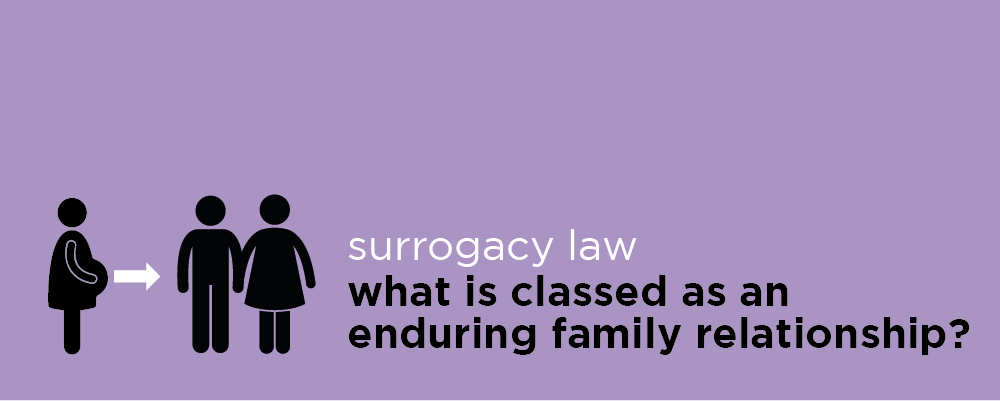- Basildon 01268244144
- Chelmsford 01245453800
- Colchester 01206217300
- London 020 4586 1280

Surrogacy in the UK is fast becoming a popular option for those wishing to start or extend their family. We understand it can be an exciting but challenging time for families and we aim to make the process as smooth and straightforward as possible.
The recent case of W v Y [2021] EWFC 119 has recently become available and the decision of Theis J has opened up the avenues for those wishing to apply for a Parental Order. In tandem with this, our services are expanding.
Parental Order
When a child is born, the surrogate is automatically the child’s legal parent. To change this, it is necessary to obtain a Parental Order from the court. Without this (or an Adoption Order) the surrogate remains the child’s legal parent and you may not have the authority to make decisions on behalf of your child.
The law surrounding who can apply for a Parental Order is contained in Section 54 of the Human Fertilisation and Embryology Act 2008. This section provides that joint applicants must be either husband and wife, civil partners, or two persons who are living as partners in an enduring family relationship.
The case of W v Y
However, the case of W v Y has expanded upon what is meant by an enduring family relationship. The case confirmed that a platonic friendship (i.e. a relationship with no romantic or sexual features but more than simple friendship) constitutes an enduring family relationship. This has the potential to widen the scope for applicants, meaning those who are in a platonic friendship and wish to extend their family by way of surrogacy can apply to obtain a Parental Order.
In the case, the Judge adopted a wide construction of the statute and confirmed that the child had had his home with both applicants when the application for a Parental Order was issued and that both applicants had responsibility for the care of the child.
Parliamentary debates have also confirmed that couples need not be in an intimate relationship and in this case, the applicants met the criteria, as they shared a commitment to each other and wished to bring up the child together within their relationship.
It is important to remember that when obtaining a Parental Order, the surrogate and their spouse/civil partner (who will also be the child’s legal parent) must provide their consent. This can only be provided once the child is at least 6 weeks old.
A Parental Order is obtained by applying to the court which then appoints a Parental Order Reporter. It is the Reporter’s role to help the court to determine whether a Parental Order is in the best interests of the child.
How we can help
At Birkett Long, our family law solicitors help intended parents navigate the law around UK surrogacy. We can advise as to the different types of surrogacy, help plan for surrogacy in the UK and assist with any disputes with surrogates. Please see our web page for further information on surrogacy and the importance of obtaining a Surrogacy Agreement.
For help with obtaining a Parental Order, or any other queries in relation to surrogacy law, please contact one of the specialist family lawyers who will be able to help guide you through the process. We offer a free 15 minutes telephone consultation in the first instance to discuss matters in further detail and see how we can help.
Katherine Parker
katherine.parker@birkettlong.co.uk
Tel: 0330 818 3071



Comments